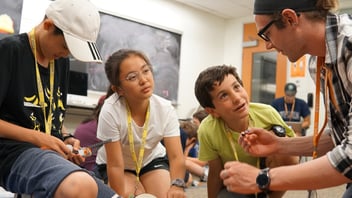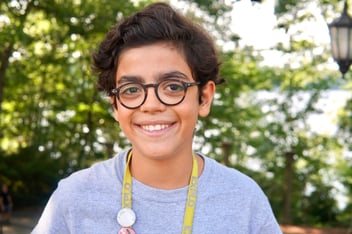Our Kids Need Nature: Four Ways to Help

In his book “Last Child in the Woods,” author Richard Louv campaigns for kids to spend unstructured time in nature, something sorely missing in the lives of most children today. Our connection to the outdoors has greatly disintegrated, even compared to what it was decades ago. Learn why Louv says it’s critical that we get our kids outside and exploring, and find out how you can help.
Louv, a journalist, nature advocate, and recipient of the 2008 Audubon Medal, posits that in our modern culture of overparenting and overscheduling, particularly when it comes to leisure time, kids are losing an attachment to and understanding of nature. Louv urges parents and educators to help children loaf and learn outdoors to rid the next generation of “nature deficit disorder.”
Instead of using free time to explore backyards and woods, seeing where the open space of the day and landscape take them, kids are focused on structured sports and activities, with little to no room for natural exploration. Louv insists that what kids miss in this tradeoff is not trivial. An organic connection to nature is a foundational source of creative inspiration. Lose that and you stand to lose a significant piece of your self and your potential.
According to Louv, this “nature deficit disorder,” as he calls it, leaves children vulnerable to a diminished use of the senses, attention difficulties, less confidence, and a greater incidence of physical and emotional illness. Louv urges parents to help get kids unplugged from electronics and back outside.
Louv also worries that today’s young people have been getting the wrong message about our natural world. With narratives of fear and shame dominating the issue of global warming, children and young adults may feel a sense of helplessness and inertia. The message has been: it’s too late, you're too late. In fact, Louv asserts, we need to move away from this fatalistic approach and empower young people.
Parents and Schools Can Help Foster The Outdoor Connection
Louv makes four key suggestions for ways parents and schools can help foster the next generation’s connection to nature.
1. Get Outside With Your Kids
Embrace what Louv calls “nearby” nature and explore whatever outdoor space you have. You don’t need access to a national park to reap the benefits of spending time outdoors. You do need to stay at a distance and let your kids loaf and learn.
2. Challenge Your Fears
Louv suggests that much of what holds kids back in their outdoor experience is parental anxiety, often surrounding what children will encounter and how. Louv encourages parents to challenge their anxiety and embrace letting go.
3. Be Optimistic
Louv advocates that parents and teachers promote optimism and empowerment in our messages to kids about nature. Avoid bleak narratives and help kids recognize the important responsibility they have to help themselves and their world.
4. Create Dedicated Outdoor Classrooms
Help your students in countless ways--including developing grit and confidence--by allowing them to escape the confines of the regular classroom and learning directly from nature. See how Kindergarten teacher Eliza Minnucci has done it for her class during Forest Mondays at The Ottauquechee School in Quechee, Vermont.

Richard Louv is a journalist and author of eight books "about the connections between family, nature, and community." Check out his book Last Child in the Woods: Saving Our Children From Nature-Deficit Disorder and visit his website to discover his other works.



